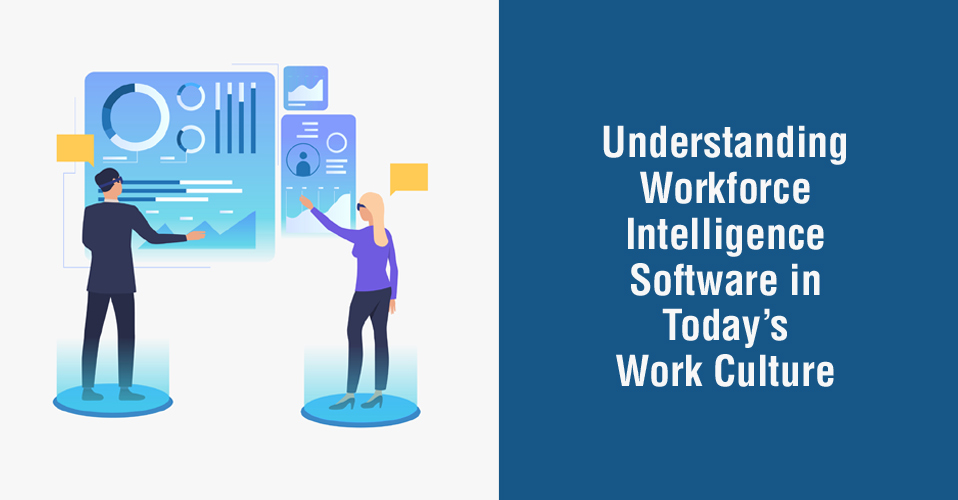Upskilling serves as a valuable investment for your future. Whether it comes in the form of leadership workshops or specific skills training, it is an effective way to attract better work and overcome adversities, such as a global crisis.
With the COVID-19 pandemic changing the way things work for companies, there is very little doubt that a “new normal” is about to ensue.
In fact, entrepreneurs see technology as a means to make their business work in these uncertain times, which means that there will be a huge demand for IT professionals in the coming years.
Do you want to know what skills you need to match the jobs that are on the rise in 2021 and beyond?
This article lists down the top five tech skills companies will be looking for in the near future, so you can know which IT courses to take to better your chances of getting hired:
1. Artificial Intelligence
Since people-to-people contact has been limited these days because of the risk of exposure to the COVID-19 virus, it is expected that more companies will seek artificial intelligence (AI) solutions as a workaround.
This technology offers opportunities to augment a human workforce and is, therefore, significantly changing the landscape of work.
Programmers have a more viable career path amidst the “new normal,” with skills innatural language processing and machine learning serving as their best asset.
This is because such skills allow them to harness AI power to help companies deliver more personalized, relevant, and innovative offerings to the market.
Because of the vast adoption of the technology, AI specialist employment has grown exponentially, with a 74 percent year-on-year increase from 2016 to 2020. In fact, AI specialists have been crowned first place as LinkedIn’s list for the top emerging jobs.
2. Data Science
Since a new normal is expected to come, more companies will want to update their data on consumer behavior and other aspects of the business that need to be analyzed.
Considering that this change will be for developing in the long-run, they would need constant monitoring and analysis, something that data science can help with.
While data science is already at the foundation for most businesses today, more organizations will seek people with a talent for crunching numbers and statistics, and using these to gain useful insights about the market.
This will allow them to uncover the right path to take and make the best decision for their company.
Dubbed as the “sexiest job of the century,” the position of a data scientist offers just about everything a professional could ever want, including:
- The privilege to get involved in crucial decision-making
- High growth potential
- Interesting work
- Bountiful compensation
This has been the case for the past decade. As proof, a January 2019 report by Indeed revealed a surprising 29 percent year-on-year growth in data scientist positions, which is a 344 percent increase from numbers recorded in 2013.
Moreover, data science professionals earn an average of US$ 108,000 per year and are hired by big companies such as Amazon, Paypal, Apple, Facebook, Twitter, Google, Microsoft, and Intel.
3. Cloud Computing
Cloud computing is another skill seen to dominate the incoming years as many companies today are built around and run on the cloud.
With this in mind, the increase in demand for professionals with talent in the technical design, architecture, and delivery of cloud systems such as Amazon Web Services (AWS) and Microsoft Azure is not surprising at all.
Today, cloud computing job vacancies are increasing because more organizations are switching to cloud from the classic server infrastructure.
Most professionals who tread this path in tech are usually cloud architects, system administrators, or engineers.
It is worth noting, however, that those who have been certified in cloud computing earn more than IT workers who are not, with an average salary of $113,000 – the highest for certified IT professionals in Canada and the United States.
Moreover, the median salary for this profession is $146,350, with AWS specialist jobs dominating the market in more than 190 countries.
4. UI or UX Design
Unless a vaccine against the SARS-CoV-2 virus becomes available, any person-to-person transactions between businesses and consumers will be limited for the foreseeable future.
This is why more companies are investing in their own websites and apps to make sure that their customers still have a way of finding their products or services while reducing the risk of contracting the new coronavirus.
However, this task presents a significant challenge, particularly due to consumers’ ever-decreasing average attention span.
Since this is mostly because people have limited patience for unintuitive products, companies require the help of skilled professionals in creating human-centric experiences. This is where UI and UX design come in.
Although both members of the same family, user interface (UI) and user experience (UX) are quite different.
UI focuses on the website or app interface design to make them more visually appealing and easy to navigate.UX, on the other hand, has a lot more to do with how users interact with the company through the website or app, which means it requires thorough research and testing on the elements involved in the process.
If you’re someone who’s more focused on the layout, visuals, and the general feel of a product or page, UI design is a better choice for you. But if you excel in analysis and have topnotch testing skills to ensure that a business meets customer needs, then you must consider learning UX.
5. The Internet of Things (IoT)
Crisis or not, the goal of technology is to make life generally easier. This remains the primary reason for the growing need for skilled professionals who can use the power of the Internet of Things (IoT).
Generally, IoT covers everything linked to the Internet. From simple sensors to wearable devices and smartphones, it focuses on objects “talking” to each other.
But the Internet of Things is expected to become an “Internet of Everything” soon enough. In fact, leading research and advisory firm Gartner predicts that more than 20 billion devices will be connected by the end of 2020.
In the final quarter of 2018, Gartner reported that the demand for IoT-related positions increased by nearly 50 percent and is expected to continue doing so in the years to come.
The firm also revealed that the value of the IoT industry would have reached US$ 45 billion by the end of the year.
Upskill Before the Dust Settles
Skills training is a great way to increase your value as a tech professional, especially when health crises that limit human mobility occur.
Although the world has yet to see what the “new normal” will be exactly, predictive moves can be quite useful for professionals who want to be the first to capitalize on it once the dust settles.
Also Read: Top Subjects That Your Kids Can Learn Online in the Age of COVID-19

















Add Comment